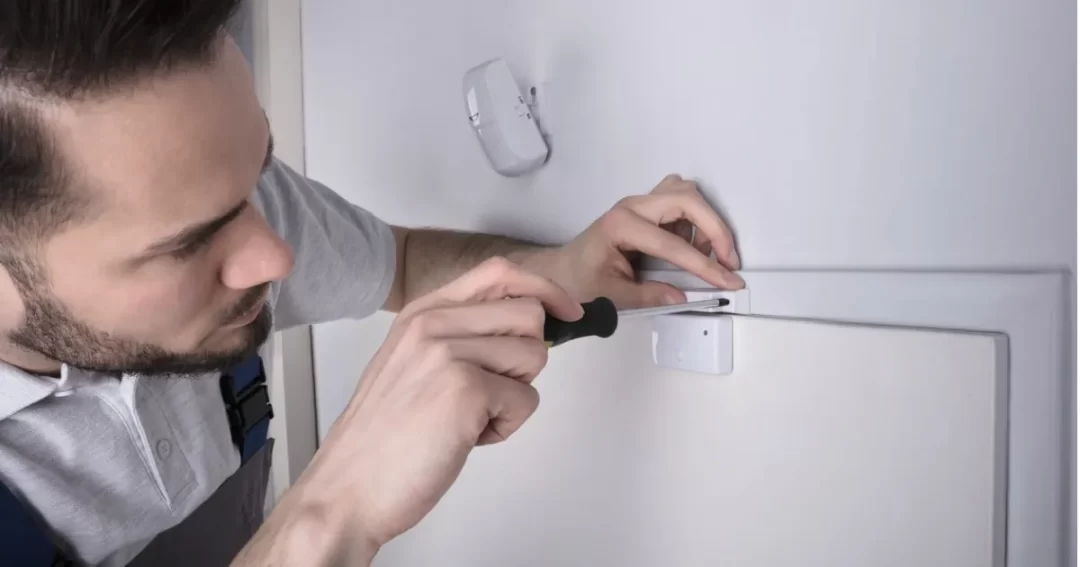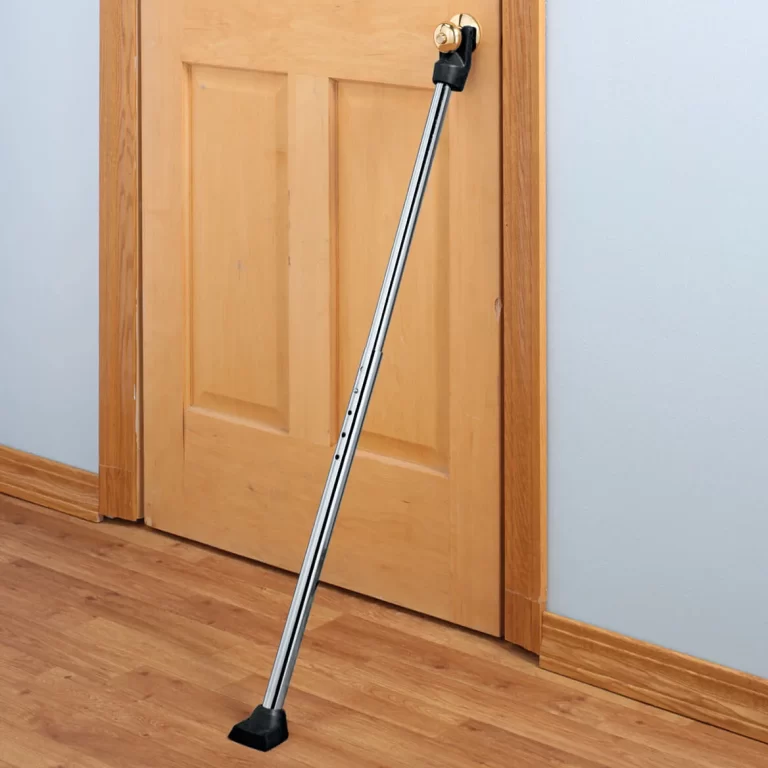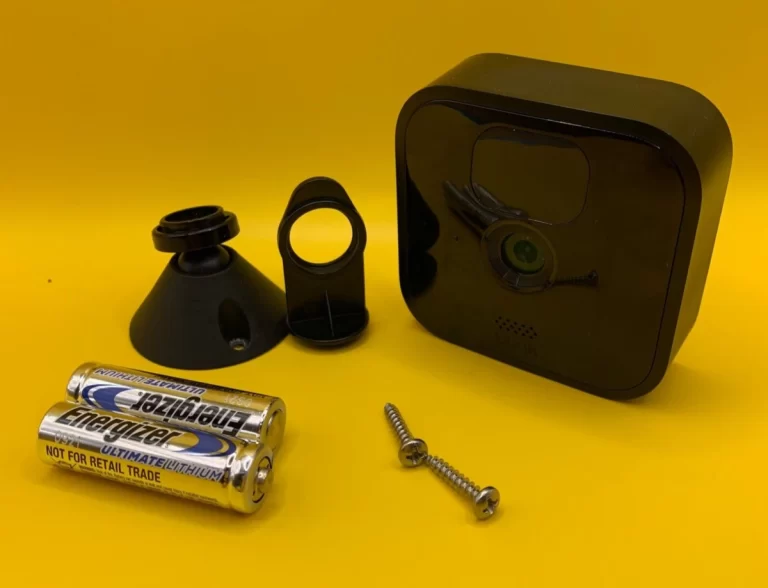What Does Windows Sensor Do? Everything You Need to Know
What does Windows Sensor Do? Welcome to the world of home security window sensors, where peace of mind meets simplicity. In this comprehensive guide, we’ll explore the vital role these sensors play in keeping your home safe.
They detect if someone tries to open or break a window and immediately alert you. By adding an extra layer of protection, these sensors work alongside your security system to keep intruders at bay.
Get ready to discover how these small devices make a big difference in enhancing the security of your home.

What Does Windows Sensor Do?
Home security window sensors are designed to detect and alert you when there is unauthorized access or tampering with your windows.
They act as a crucial component of your home security system, providing an extra layer of protection for your property.
When a window is opened, tampered with, or broken, the sensor detects the change and triggers an alarm or sends a notification to your security system.
This immediate detection helps deter potential intruders and provides you with early warning, allowing you to take appropriate action.
By monitoring the status of your windows, these sensors contribute to a comprehensive security setup, ensuring that all potential entry points are effectively covered.
How Window Sensors Improve Home Security
What does windows sensor do? Window sensors play a crucial role in enhancing home security by providing an extra layer of protection against unauthorized entry and intrusions.
Here are some ways in which window sensors improve home security:
1. Intrusion Detection
Window sensors are designed to detect when a window is opened, tampered with, or broken.
When the sensor is triggered, it sends a signal to the home security system, which can then activate an alarm, notify the homeowner, or alert a monitoring service.
This immediate detection and notification serve as a deterrent to potential intruders and provide early warning to residents.
2. Comprehensive Coverage
By placing window sensors on vulnerable entry points like ground-level windows, basement windows, or windows in secluded areas, you can achieve comprehensive coverage of your home’s perimeter.
This ensures that any attempt to breach a window is detected, regardless of the intruder’s chosen entry point.
3. Entry Point Monitoring
Windows are often targeted by intruders as potential entry points due to their relative vulnerability compared to doors.
Window sensors allow you to monitor these specific entry points, complementing the security provided by door sensors. This comprehensive monitoring helps ensure that all possible access points are secured.
4. Immediate Response
Window sensors are typically connected to a home security system that can trigger an immediate response when a breach is detected.
This can include sounding a loud alarm, activating outdoor lights, or notifying authorities or a professional monitoring service. The quick response helps deter intruders and increases the chances of catching them in the act.
5. Integration with Home Automation
Window sensors can be integrated with home automation systems, allowing you to incorporate window monitoring into your overall smart home security setup.
This integration enables you to receive real-time alerts on your mobile devices, remotely monitor the status of windows, and even automate actions such as closing blinds or activating surveillance cameras when a window is opened.
6. Peace of Mind
Knowing that your windows are equipped with sensors provides peace of mind, especially when you are away from home.
You can have confidence that your security system is actively monitoring your windows and will alert you in case of any suspicious activity, helping you feel more secure and protected.
Types of Window Sensors for Home Security

What does windows sensor do? In the context of home security systems, “window sensors” typically refer to sensors specifically designed to monitor the status of windows in order to detect unauthorized entry or intrusion.
There are different types of window sensors commonly used in home security setups. Here are a few examples:
1. Magnetic Contact Sensors
These sensors consist of two components, a magnet and a reed switch, that are installed on the window frame and the corresponding portion of the window.
When the window is closed, the magnet aligns with the reed switch, completing a circuit. If the window is opened or tampered with, the circuit is broken, triggering an alarm.
2. Glass Break Sensors
These sensors are designed to detect the sound or vibration produced when glass is shattered or broken.
They are typically placed in close proximity to windows and use microphones or vibration sensors to detect the specific acoustic patterns associated with glass breaking. When the sensor detects such patterns, it triggers an alarm.
3. Motion Sensors
While not specifically designed for windows, motion sensors can be strategically placed to cover windows or areas near windows.
These sensors use infrared technology to detect movement and can trigger an alarm if motion is detected when the system is armed.
4. Pressure Sensors
Pressure sensors are installed on windows and are triggered when pressure is applied to the window, such as an attempt to force it open.
When pressure beyond a certain threshold is detected, the sensor activates an alarm.
5. Photoelectric Beam Sensors
These sensors use a transmitter and receiver pair placed on opposite sides of a window. The transmitter emits an infrared beam, and the receiver detects the beam.
An alarm is triggered if someone interrupts the beam by crossing the window.
Conclusion
In conclusion, home security window sensors play a crucial role in bolstering the security of residential properties.
Window sensors can be strategically placed to cover vulnerable entry points and seamlessly integrate with home security systems and automation, providing comprehensive coverage and enabling remote monitoring and control.
Overall, home security window sensors are vital in safeguarding homes, enhancing security measures, and fostering a sense of safety and protection for homeowners and their families.
READ ALSO!!!




